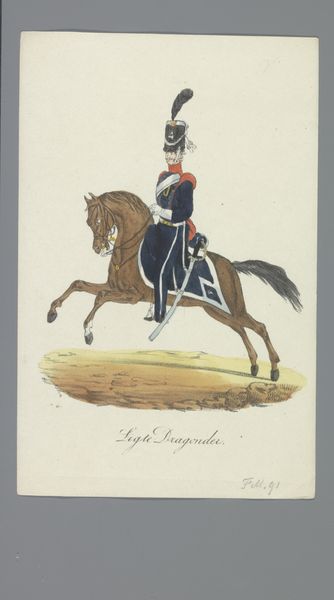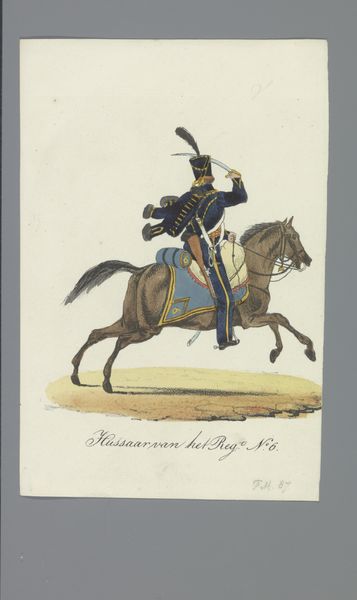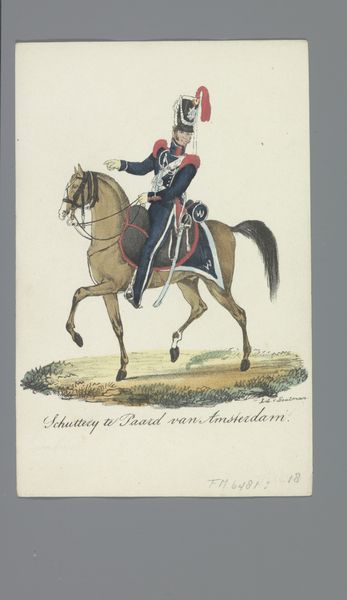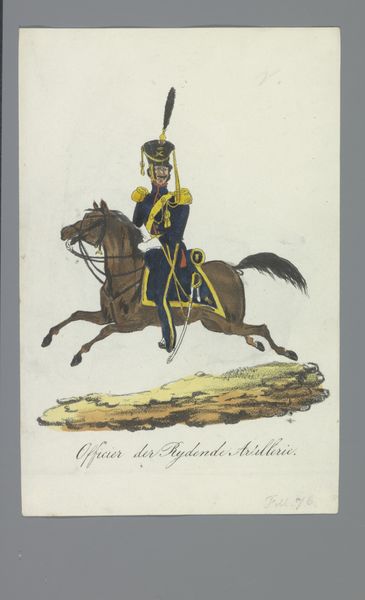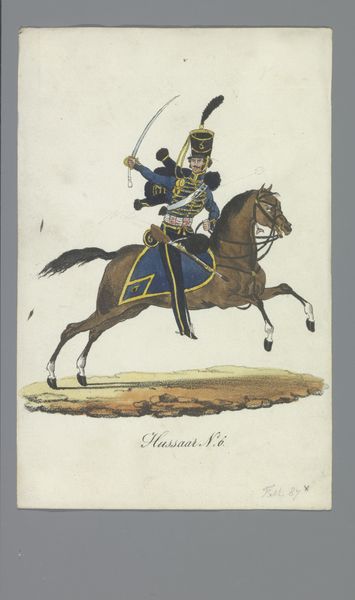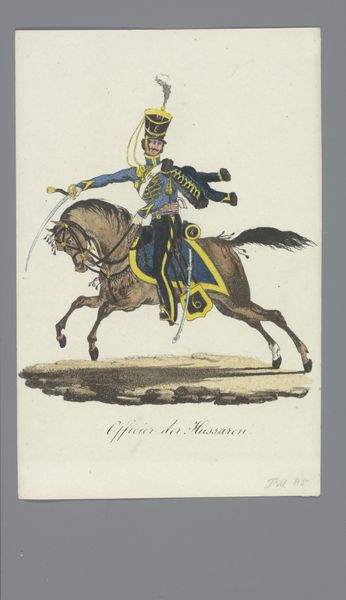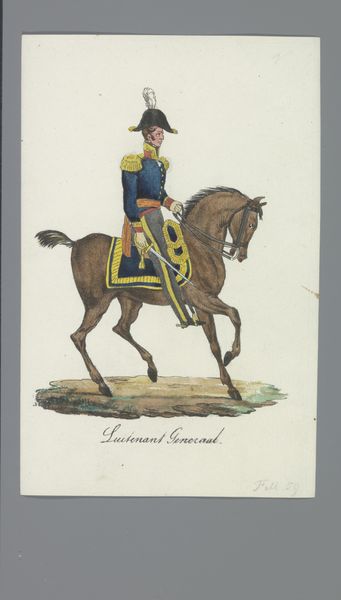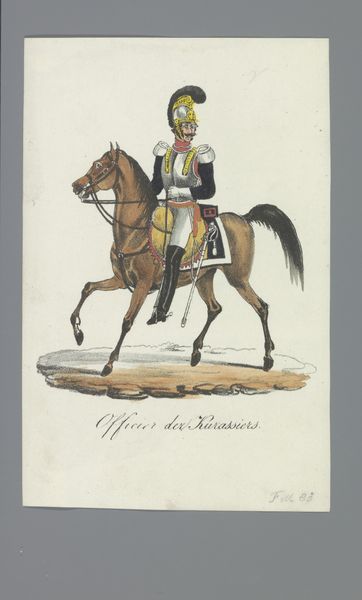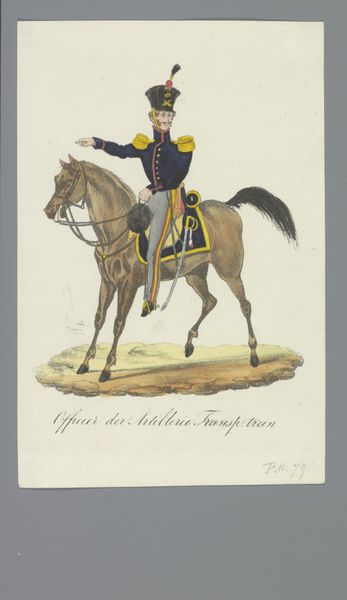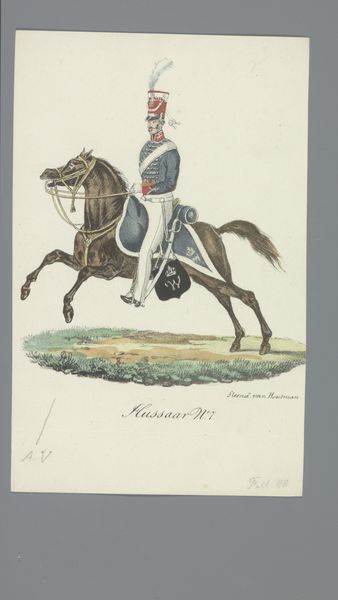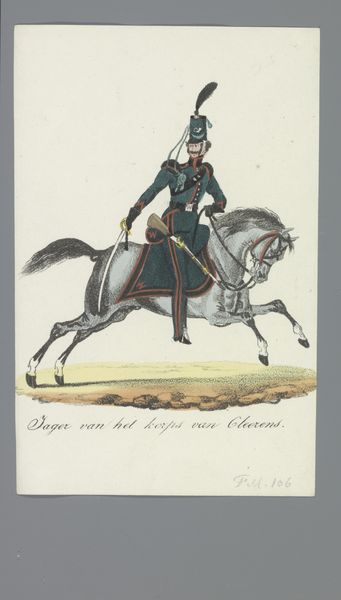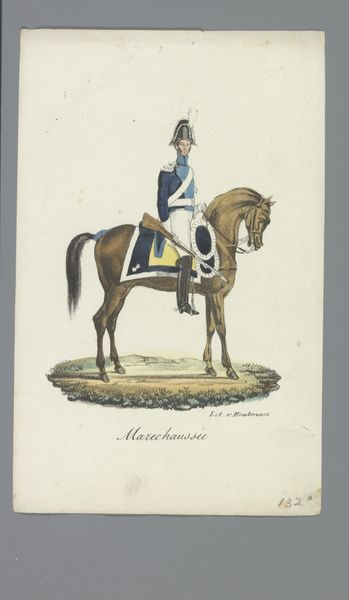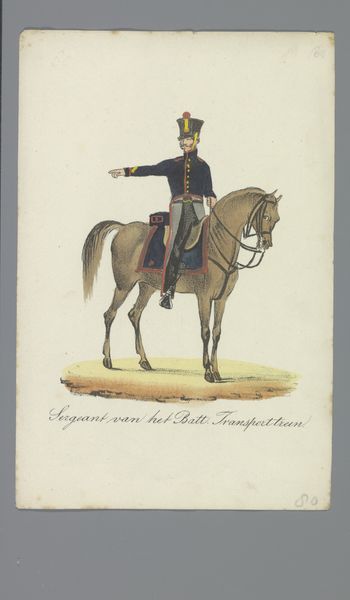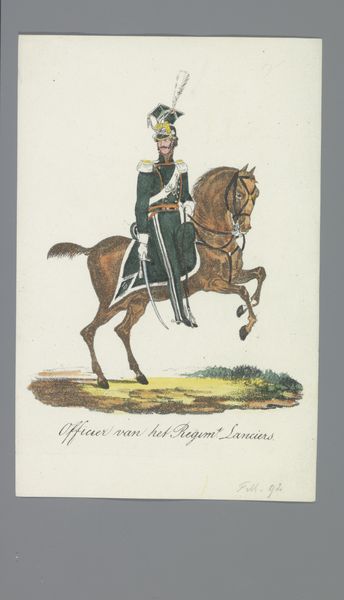
drawing, painting, watercolor, pencil
#
portrait
#
drawing
#
painting
#
landscape
#
figuration
#
watercolor
#
romanticism
#
pencil
#
costume
#
sketchbook drawing
#
watercolour illustration
#
genre-painting
#
academic-art
Dimensions: height 170 mm, width 110 mm
Copyright: Rijks Museum: Open Domain
Editor: This is *Officier der Dragonders* by Albertus Verhoesen, made sometime between 1835 and 1850. It looks like a watercolor and pencil drawing. There’s an interesting simplicity to it; the subject is clear, but it feels very economical in its detail. What compositional choices stand out to you? Curator: Notice how Verhoesen delineates form primarily through line rather than relying heavily on tonal modeling. The crispness of the contour establishes the figure’s presence within the picture plane. Consider the deliberate restriction in palette – primarily blues, browns and white – and how that impacts our reading of the work. How might this parsimonious approach speak to a nascent concept of modernist aesthetics, even at this earlier date? Editor: I see what you mean. The limited palette and strong lines do create a striking effect. Do you think the relatively flat background also plays a part in emphasizing these features? Curator: Precisely. The stark background denies a sense of deep space. Attention is immediately drawn back to the surface, underscoring the materiality of the drawing itself. We are invited to examine the artist's hand in creation rather than being pulled into an illusionistic world. Have you noticed anything about the formal qualities of the handwriting at the bottom? Editor: That’s fascinating, the artist almost seems to be signing his name right into the piece. Curator: Yes! The handwriting merges graphic sign with text. Overall, Verhoesen provides a self-referential visual field; it's not merely *what* is represented, but also *how*. Editor: I see how focusing on line and color brings a new dimension to appreciating its modern feel. Thanks for pointing those details out! Curator: It is a pleasure, consider always, not only the represented object, but how representation operates and implicates our interpretations.
Comments
No comments
Be the first to comment and join the conversation on the ultimate creative platform.
